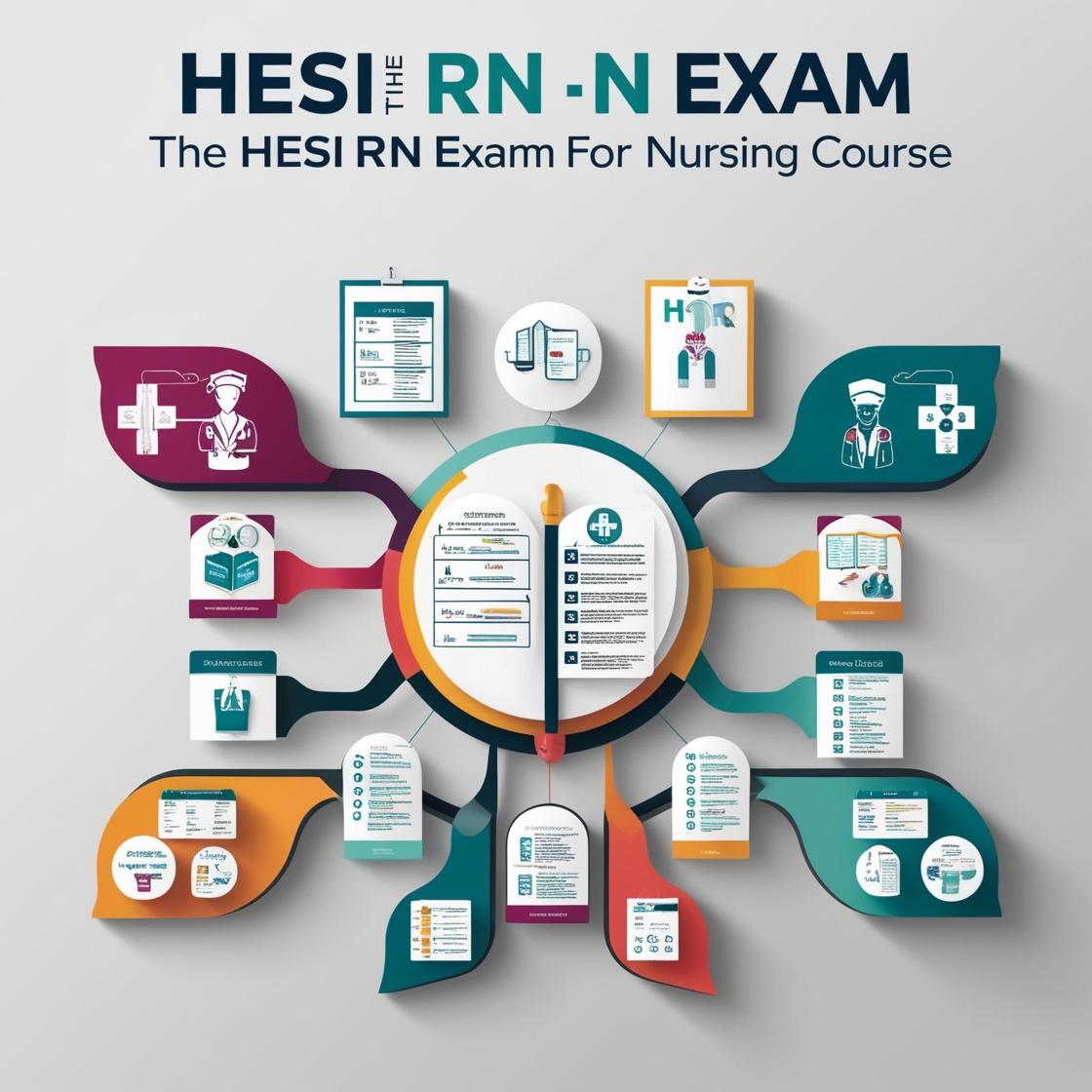HESI RN
HESI Medical Surgical Practice Exam Quizlet
1. A client who has just undergone surgery suddenly experiences chest pain, dyspnea, and tachypnea. The nurse suspects that the client has a pulmonary embolism and immediately sets about:
- A. Preparing the client for a perfusion scan
- B. Attaching the client to a cardiac monitor
- C. Administering oxygen via nasal cannula
- D. Ensuring that the intravenous (IV) line is patent
Correct answer: C
Rationale: When a client who has just undergone surgery experiences sudden chest pain, dyspnea, and tachypnea, indicating possible pulmonary embolism, the immediate priority for the nurse is to administer oxygen via nasal cannula. This intervention aims to improve oxygenation and alleviate respiratory distress, which is crucial in the setting of a potential pulmonary embolism. Preparing the client for a perfusion scan is not the immediate priority as stabilizing the client's respiratory status comes first. While attaching the client to a cardiac monitor is important for monitoring, administering oxygen takes precedence in this situation. Ensuring IV line patency is relevant for overall client care but is not the priority when a client is experiencing respiratory distress requiring immediate intervention.
2. Which information about mammograms is most important to provide a post-menopausal female client?
- A. Breast self-examinations are not necessary if annual mammograms are obtained.
- B. Radiation exposure is minimized by shielding the abdomen with a lead-lined apron.
- C. Yearly mammograms should be done regardless of previous normal screenings.
- D. Women at high risk should have annual routine and ultrasound mammograms.
Correct answer: C
Rationale: The most important information to provide a post-menopausal female client regarding mammograms is that yearly mammograms should be done regardless of previous normal screenings. It is crucial for post-menopausal women to continue regular mammograms as they are at a higher risk for breast cancer. Option A is incorrect as breast self-examinations are still recommended in addition to mammograms. Option B is not the most important information compared to the importance of regular mammograms. Option D is not the most important advice for all post-menopausal females but specifically for those at high risk, indicating a more targeted approach.
3. A female client is brought to the clinic by her daughter for a flu shot. She has lost significant weight since the last visit. She has poor personal hygiene and inadequate clothing for the weather. The client states that she lives alone and denies problems or concerns. What action should the nurse implement?
- A. Notify social services immediately if suspected elderly abuse is present.
- B. Discuss the need for mental health counseling with the daughter.
- C. Explain to the client the importance of taking better care of herself.
- D. Collect further data to determine whether self-neglect is occurring.
Correct answer: D
Rationale: In this scenario, the client presents with significant weight loss, poor hygiene, and inadequate clothing, which are concerning signs of self-neglect. Before taking action, it is crucial for the nurse to collect more data to determine the root cause of these issues. Jumping to conclusions or immediately involving social services without a thorough assessment could potentially harm the client or strain relationships. Discussing the need for mental health counseling with the daughter or simply advising the client to take better care of herself may not address the underlying problem of self-neglect. Therefore, the most appropriate initial action is for the nurse to collect further data to make an informed decision before taking the next steps.
4. Which symptoms should the nurse expect a client to exhibit who is diagnosed with a pheochromocytoma?
- A. Numbness, tingling, and cramps in the extremities.
- B. Headache, diaphoresis, and palpitations.
- C. Cyanosis, fever, and classic signs of shock.
- D. Nausea, vomiting, and muscular weakness.
Correct answer: B
Rationale: Correct. Pheochromocytoma is a catecholamine-secreting non-cancerous tumor of the adrenal medulla. The classic triad of symptoms includes headache, diaphoresis (excessive sweating), and palpitations, which result from the overproduction of catecholamines like epinephrine and norepinephrine. Numbness, tingling, and cramps in the extremities (Option A) are not characteristic of pheochromocytoma. Cyanosis, fever, and classic signs of shock (Option C) are not typical symptoms of this condition. Nausea, vomiting, and muscular weakness (Option D) are not commonly associated with pheochromocytoma.
5. The nurse is assessing a client with chronic kidney disease (CKD). Which finding is most important for the nurse to respond to first?
- A. Potassium 6.0 mEq/L.
- B. Daily urine output of 400 ml.
- C. Peripheral neuropathy.
- D. Uremic fetor.
Correct answer: A
Rationale: The correct answer is A. Potassium level of 6.0 mEq/L indicates hyperkalemia, which is a critical electrolyte imbalance in clients with chronic kidney disease. Hyperkalemia can lead to life-threatening arrhythmias, making it the priority finding to address. Choice B, a daily urine output of 400 ml, may indicate decreased kidney function but does not pose an immediate life-threatening risk compared to hyperkalemia. Peripheral neuropathy (Choice C) and uremic fetor (Choice D) are common manifestations of CKD but are not as urgent as addressing a potentially fatal electrolyte imbalance like hyperkalemia.
Similar Questions

Access More Features
HESI RN Basic
$69.99/ 30 days
- 50,000 Questions with answers
- All HESI courses Coverage
- 30 days access @ $69.99
HESI RN Premium
$149.99/ 90 days
- 50,000 Questions with answers
- All HESI courses Coverage
- 30 days access @ $149.99
